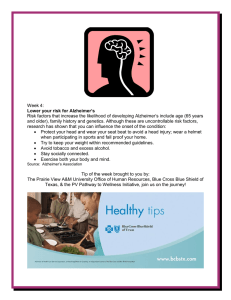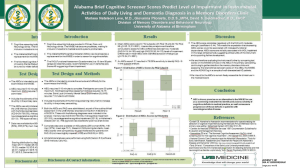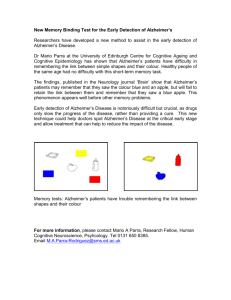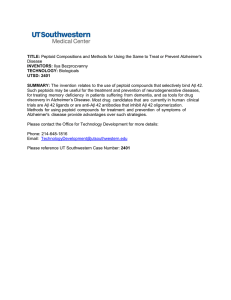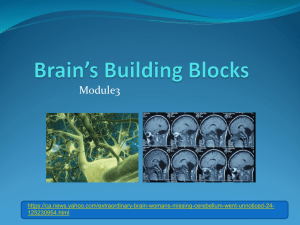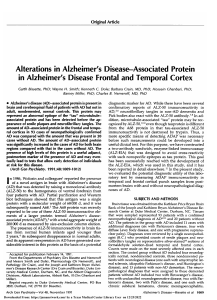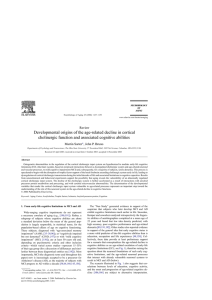Kuliah Lansia Blok 20
advertisement
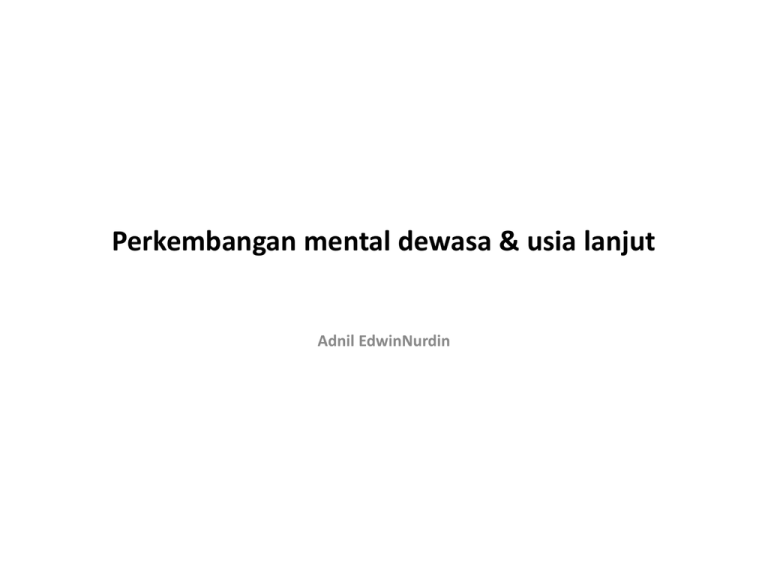
Perkembangan mental dewasa & usia lanjut Adnil EdwinNurdin BEHAVIORAL GROWTH AND DEVELOPMENT Erik Erikson Epigenetic Principle • Development occurs in sequential, clearly defined stages • Specific issue in each stage • Issues in each stage must be resolved Development can proceed smoothly • Successful resolution failed in a particular stage All subsequent stages reflect that failure • Maladjustment of: Physical growth Cognitive development Social development Emotional development Stages • • • • • • • • • • • • • • • • • 1.Basic Trust versus Mistrust (birth-1 year) Need for instant satisfaction, TRUE LOVE Resolved-----Strong Basic trust, believe in others, hopeful attitude, self confidence, trustful personality Unresolved-------suspicious, can’t control urge 2.Autonomy versus Shame and Doubt (1-3 years) learning to walk, feed it self, talk, TOILET TRAINING need for firm outer control, first discipline, in love----autonomy to much outer control------shame to much punishment, harsh discipline----self doubt 3.Initiative versus Guilt (3-5 years) initiative arises in relation to tasks for the sake of activity guilt arises on contemplated goal mimic adult world sibling rivalry resolution through social role identification I am a boy, she is a girl. I play with a toy gun, she plays with a doll Stages (cont) • • • 6.Intimacy versus Isolation (21-40 years) to love, to work, to nurture others, to be responsible for others resolved-----intimacy, loyalty, responsible, loving unresolved---isolation, view that others are dangerous 7.Generativity versus Stagnation (40-65 years) work for the future generation, productive, creativity, concern and responsibility for others, striving to left some thing good for future generation after death--GENERATIVITY Unresolved-----self concern, isolated 8.Integrity versus Despair (more than 65 years) Integrity---sense of satisfaction that life has been productive and worthwhile-----I WILL SLEEP IN PEACE, AND IF THE TIME CAME, I HAVE LEFT SOMETHING USEFUL FOR POSTERITY. THANK’S GOD FOR THIS LIFE Despair----what have I done in the past---FEARFUL OF DEATH Conclusion 1.Growth and development occur in stages 2.Each stage has it’s own specific issues which must be resolved 3.Unresolved issues in certain stage will hamper the next stages 4.Growth and development failure • POST POWER SYNDROME ? PERSONALITY MEMANG SUDAH TERGANGGU WHAT ARE THE BIOLOGICAL BASE OF AGING? • Memory in normal aging vs Alzheimer • • memory loss, hallmark Alzheimer's disease. memory loss normal aging diff. Alzheimer's • Mild cognitive impairment (MCI) transitional state cognitive changes of normal aging Alzheimer's disease MCI risk factor Alzheimer’s disease. 55% MCI Alzheimer dalam 4.5 tahun HIPOKAMPUS Memory decline in normal aging • • • • • • ability to encode new memories of events or facts working memory episodic memory impairments in the ability to refresh recently processed information remembering the source of information declines in the ability to bind information together Domains of memory mostly spared in normal aging • • • • procedural memory short-term memory semantic knowledge, such as vocabulary, improves with age enhancement in memory for emotional events • Retrospective versus prospective memory prospective memory naturalistic contexts > retrospective < Qualitative changes • • • • brain imaging use both hemispheres when completing memory tasksstrategi berubah positivity effect when remembering information increased focus on regulating emotion preferential looking toward happy and away from sad ALZHEIMER • • • • • neurodegenerative disease Progressive cognitive deterioration Declining activities of daily living Neuropsychiatric symptoms or behavioral changes Most common type of dementia Gradual symptoms • • • • • • • • • • • 1 st.loss of short term memory (amnesia) minor forgetfulness steadily more pronounced relative preservation of older memories. cognitive (intellectual) impairment language (aphasia) skilled movements (apraxia), recognition (agnosia), decision-making and planning closely related to the frontal and temporal lobes disconnected from the limbic system, disease where the victims suffer the loss of qualities that define human existence. Patobiologi • neuronal loss/atrophy, in the temporoparietal and frontal cortex • inflammatory response to amyloid plaques and neurofibrillary tangles. • Mutasi 3 gen familial, early-onset AD. • mutasi ApoE4 late onset AD Neuropathology • • • • • • • Anatomigross diffuse atrophy of the brain loss of neurons, dendrit dan synap di cerebral cortex subcortical regions. gross atrophy degenerasi temporal lobe, parietal lobe,frontal cortex ,cingulate gyrus. acetylcholine, serotonin, norepinephrine, somatostatin me< Glutamate me> Risk reducers • • • • Intellectual stimulation, catur, bridge, crossword Regular physical exercise Regular social interaction A generally healthy diet low in saturated fat, supplemented in particular with: – B vitamins – Omega-3 fatty acids, especially Docosahexaenoic acid – Fruit and vegetable juice DETEKSI KLINIS AWAL • MMS
